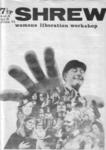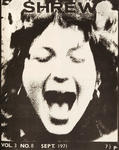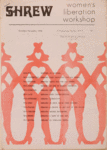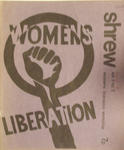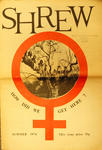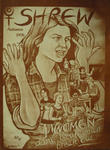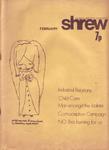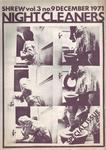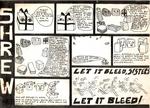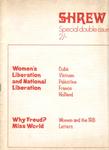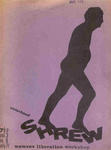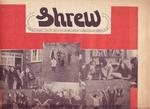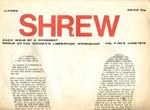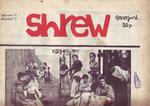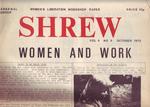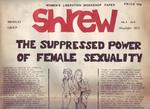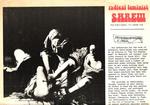Shrew: Women's Liberation Workshop (1969-1978)
type=digital_archives
"Traditionally, SHREW was put together by existing groups within the London Women's Liberation Workshop, usually by a local group who had been meeting together for some time." (Shrew, Autumn 1976).
Published by Women's Liberation Workshop from 1969 - 1974, with an additional issue s appearing sporadically after 1976. Publication address varied. Publication size and quality also varied, with some issues typed and photocopied on A4 paper, and some professionally printed broadsheet newspapers.
Local feminist publications sprang up in areas in Britain in an attempt to unify the female population of certain localities and combat the sense of isolation felt by many women. These often emerged out of local women’s centres that were set up to offer advice and services such as pregnancy tests to local women. This was the case with the ‘York Feminist News’ written, typed, duplicated and distributed by women involved in York’s Women’s Centre and the ‘Sheffield Women’s Newsletter’ which covered events such as the Socialist Feminist Conference in Manchester.
A local example of this was the feminist newsletter ‘Shrew’ that was set up in Bristol in connection with small groups of women meeting in the area [this might not be correct- I think Shrew started in London]. It covered various issues and its philosophy was encapsulated in the comments of one contributor,
‘I think we should work with women in any action which is relevant to them as women, not necessarily as socialists’.
However, the socialist ethic was evident in the magazine and in particular in the way responsibility for its production was shared. An early issue sets out how this worked, stating,
‘we decided that responsibility for producing the monthly newsletter should circulate among the groups, and that the chairman and agenda for the general meeting, and the month’s correspondence, should be provided by the group responsible for that month’s newsletter.[5]’
The local nature of the newsletter made it possible for it to take a more practical approach to issues and attempt to change the lives of local women. A more general magazine such as Spare Rib would have found this more difficult. An example of this practical approach was the campaign set up by ‘Shrew’ to investigate and improve the availability of contraception and abortion in the local area. The research carried out revealed that contraception in the area was difficult to obtain due to the restricted hours at the few clinics in the area. For the majority of women contraception had to be paid for and the consent of a women’s husband had to be granted before an IUD could be fitted[6]. The raising of awareness of such issues was one of the major functions performed by such publications but the ability of a small locally run newsletter to change conditions for women was in fact small.
The magazine also made an active effort to change conditions for local working women as is shown in their campaign to unionise night-cleaners who endured sub-standard conditions at work and wages of as little as £12 for a night’s work despite the unsocial nature of their hours. It also made a statement in its price which was stated on the front cover as 6d for women and 9d for men, until equal pay was achieved.
The extent to which these publications influenced those women who were not already interested in feminism is doubtful. The June 1971 issue of ‘Shrew’ published interviews with a sample of housewives that suggested many women were unaffected by feminist literature and indeed by the Women’s Liberation Movement as a whole. One housewife, on being asked what she thought of women meeting in groups answered,
‘I don’t think it does a lot of good. I think it’s a lot of lesbians getting together for a giggle…I can’t see any good in Women’s Liberation. I mean you run your own home and if you are anyone you run it the way you want it run…[7]’
It is perhaps fair to say then that such literature did little to convert those women who were not interested in feminism in the late 1960’s and 1970’s. However for those who did take an interest, especially those unable to take a more active role in the Liberation Movement due to family restrictions or a remote location, magazines such as ‘Shrew’ were invaluable. Local publications particularly played a role in bringing women with the same views into contact with each other, helping to combat the sense of isolation felt by many women at the time.
[5] Shrew, 6 (October 1969).
[6]‘Contraception and Abortion Campaign’, Shrew, (February 1971).
[7] ‘Housewives talking’, Shrew, (June 1971).
Information on Shrew from "Feminist Publications", http://www.bristol.ac.uk/Depts/History/Sixties/Feminism/publications.htm

